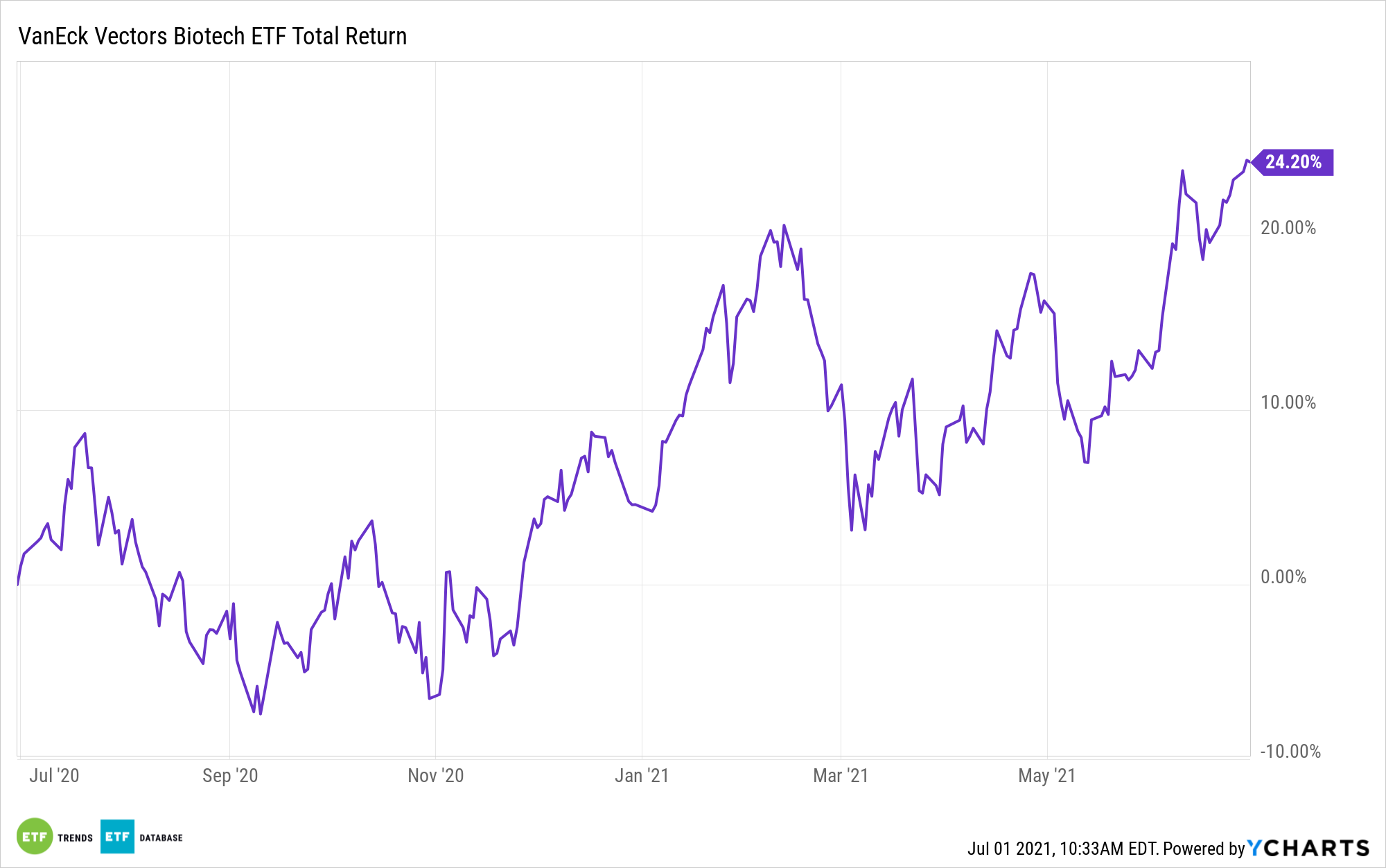The Food & Drug Administration’s (FDA) recent green light of Biogen’s Alzheimer’s disease drug Aducanumab – the first new Alzheimer’s approval in roughly two decades – could be a sign the FDA is taking a new approach to approvals.
That could benefit biotechnology stocks and exchange traded funds, including the VanEck Vectors Biotech ETF (BBH). Up over 24% over the past year, BBH has a track record of being positively correlated to swift FDA approvals. The fund was boosted last year when the FDA fast-tracked Moderna’s (NASDAQ: MRNA) COVID-19 vaccine.
Today, the $574.4 million BBH allocates over 8% of its combined weight to Moderna and Biogen (NASDAQ: BIIB), according to issuer data.
The approval of Biogen’s Alzheimer’s treatment, which will be marketed as Aduhelm, “suggests a more constructive regulatory environment for new and upcoming drug approvals, which may provide a better environment for biotech stocks and stock returns,” according to VanEck research.

More BBH Benefits
BBH, which turns 10 years old later this year, is one of the more established biotechnology ETFs on the market, but it’s not a carbon copy of its comparably aged biotech ETF brethren. The VanEck fund tracks the MVIS US Listed Biotech 25 Index, which differs from competing biotech benchmarks. As such, BBH won’t perform in lockstep with rival large cap biotech ETFs.
“Different index methodologies may lead to different holdings, characteristics, and performance, even when choosing from companies in the same industry,” adds VanEck.
Dating back to late last year, BBH’s underlying index benefited from exposure to Biogen, Moderna, and BioNTech – stocks that weren’t as prominently displayed in competing benchmarks. Indeed, BBH does things differently, and it’s often to investors’ benefit.
While the fund shares an overlap by weight of 54% with the largest biotechnology ETF, according to ETF Research Center data, BBH is up 74.8% over the past three years as compared to the 53.3% gain for its larger rival. Interestingly, BBH also sports lower annualized volatility over that period, and its maximum drawdown during that time was 330 basis points less than that of its counterpart.
BBH’s basket is tethered to what could be a more fast-acting FDA.
“BBH focuses on some of the most liquid pure play companies in the industry based on market cap and trading volume. For investors looking to participate in the Biotech revolution, BBH provides diversified exposure to the industry without forcing investors to try pick individual winners,” concludes VanEck.
For more news and information, visit the Beyond Basic Beta Channel.
The opinions and forecasts expressed herein are solely those of Tom Lydon, and may not actually come to pass. Information on this site should not be used or construed as an offer to sell, a solicitation of an offer to buy, or a recommendation for any product.







